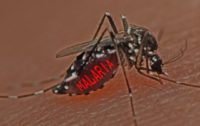In his first speech to parliament as British Prime Minister, Boris Johnson said: Let’s start now to liberate the UK’s extraordinary bioscience sector from anti-genetic modification rules and let’s develop the blight-resistant crops that will feed the world.” Johnson reads from a well-rehearsed script. The ‘GM will feed the world mantra’ is pure industry spin. There is already enough food being produced to feed the global population yet around 830 million are classed as hungry. …read more Source: Sott health news feed
By Dr. Mercola The first commercially available gene-edited food is now on the market, but consumers won’t know where it’s being sold or if they’ve eaten food that contains it. The product, a gene-edited soybean oil created by biotech company Calyxt, was picked up by its first user — a Midwest company with both restaurant and foodservice locations, which is using it for frying as well as in dressings and sauces.1 Calyxt’s soybean oil, Calyno, contains two inactivated genes, resulting in an oil with no trans fats, increased heart-healthy oleic acid and a longer shelf life. Along with refusing to [More]
After studies have confirmed that vitamin A, converted from beta carotene, is very low in genetically modified golden rice, new evidence shows that the rice is also unable to hold the biochemical for long after harvest. Unless preserved in refrigerated condition in vacuum packaging as paddy, golden rice can lose up to 84 per cent of its beta carotene in six months, according to a new Indian government research. The degradation of beta carotene level gets faster with processing and is the highest in polished golden rice, said the research released two months ago in the British journal Food Chemistry. [More]
By Dr. Mercola Genetically engineered crops are widespread in the U.S., particularly when it comes to GE corn, soybeans and cotton, but one crop that has not been approved as a genetically modified organism is wheat. According to the U.S. Department of Agriculture, “There are no GE wheat varieties for sale or in commercial production in the United States at this time, as APHIS [Animal and Plant Health Inspection Service] has not deregulated any GE wheat varieties.”1 So why, then, did the USDA recently confirm that unapproved GE wheat plants had been discovered growing in an agricultural field in Washington [More]
By Julie Fidler In the past 3 years, Monsanto’s (now Bayer) genetically modified soybean seeds have dominated 60% to 70% of the market. The Xtend soybeans bring in about $1 billion a year for Bayer, which acquired Monsanto in June 2018. But sales of the seeds are being driven by fear, and that fear has birthed an anti-trust lawsuit against the agrochemical giant. Xtend soybeans have been genetically altered to withstand an herbicide called dicamba. The weed-killer has been around for decades, but it poses a problem for farmers because it typically kills non-gmo soybeans. Farmers who plant Xtend seeds, [More]
By Jonathan Landsman (NaturalHealth365) A shocking six out of ten American adults (more than half of the population) currently suffer from some form of chronic disease – including such potentially life-threatening illnesses as heart disease, diabetes and cancer. Many experts note that the prevalence of chronic disease has increased steadily – over the last 30 years – due to the widespread consumption of GMO foods and use of wireless technology. Make no mistake about it: we are experiencing a national epidemic of chronic disease – throughout the Western world. Of course, agrochemical producers and the wireless industry refuse to accept [More]
By Dr. Mercola The first commercially available gene-edited food is now on the market, but consumers won’t know where it’s being sold or if they’ve eaten food that contains it. The product, a gene-edited soybean oil created by biotech company Calyxt, was picked up by its first user — a Midwest company with both restaurant and foodservice locations, which is using it for frying as well as in dressings and sauces.1 Calyxt’s soybean oil, Calyno, contains two inactivated genes, resulting in an oil with no trans fats, increased heart-healthy oleic acid and a longer shelf life. Along with refusing to [More]
By Michael By Mac Slavo The United States Food and Drug Administration has decided that their previous ban on genetically modified salmon can be lifted. In 2016, Congress said the salmon could not be sold in… …read more Source: Natural Blaze
By Sara Middleton, staff writer (NaturalHealth365) You may have never heard of Syngenta before, but the agrochemical company has been getting extremely close to impacting your ability to purchase healthy produce. How’s this for cheeky: Syngenta recently pushed for a patent on non-GMO tomatoes. You read that right: a patent. This is basically saying that a NON-genetically modified organism was created by Big Agra – as opposed to the laboratory offspring better known as GMO foods. What happened when a major agricultural company tried to claim TOMATOES as their own creation In an amazing feat of delusion, the Swiss-based global [More]
By Michael By Scott C. Tips Editor’s Note from Whole Foods Magazine: This article is intended for information purposes only. Because state and municipal laws vary greatly, as do the circumstances of individual… …read more Source: Natural Blaze
By Mike Barrett The Canadian federal government has launched a new risk assessment for AquaBounty’s new genetically modified (GM) salmon, following the company’s July 2018 announcement that it planned to build a new egg production and grow-out facility in Rollo Bay West, Prince Edward Island (PEI), according to Environment and Climate Change Canada (ECCC). The company has been producing a limited number of eggs at its Bay Fortune, PEI, facility. But now AquaBounty Technologies now plans to produce 250 metric tons of its AquAdvantage salmon for commercial sale both in Canada and abroad. In May 2017, ECCC said that the [More]
By Admin Human guinea pigs paid to expose themselves to mosquitoes that may carry malaria by GMWatch.org Excerpts: Under the headline, Malaria trial pays Africans to be bitten, The Times of London reports that human “guinea pigs” in the West African state of Burkina Faso are being paid to expose themselves to mosquitoes that could potentially carry malaria or other diseases. Although the Bill & Melinda Gates Foundation has invested $70 million in the project, The Times reports that about 25 African “volunteers” in the village of Bana are being paid just 69 cents (£0.55) an hour to …read more [More]
By Heather Callaghan By Sustainable Pulse The African Centre for Biodiversity (ACB) has welcomed the decision of the South African biosafety authorities, rejecting Monsanto’s application for the commercial release of its… …read more Source: Natural Blaze
By Admin Dr Caius Rommens. Image source. GMO potatoes: The risks to health Dr Caius Rommens developed GMO potatoes, but subsequently renounced his work. He explains why we should be wary of the products he created by GMWatch.org Excerpts: Dr Caius Rommens developed GMO potatoes for the Idaho-based agbiotech company Simplot. The chief genetic modification he introduced was to silence the potatoes’ melanin (PPO) gene. This gene, when operative, causes potatoes to discolour when bruised. The GMO potatoes do not discolour when bruised. They have therefore been marketed as bruise-resistant and are being sold without GMO labels in …read more [More]
“Video is at bottom of the article.” Admin Do a Google search on the world’s most evil corporations, and agri giant Monsanto is guaranteed to appear all over the first page. Despite the billions the company has spent over the years in lobbying Washington, “fixing” scientific studies proving the danger of its products, and basically doing whatever it takes to fool the public, Monsanto is now in serious trouble, and people around the globe are waking up to just how corrupt, evil and power hungry this behemoth truly is. In the latest blow to the company, American lawyers [More]
Back in the mid-1980s, Americans started becoming much more health conscious than ever before, with aerobics, “Jazzercise,” and “low-fat” foods sweeping the fitness and health food markets like there was no tomorrow. Millions of Americans wanted to eat “right” and get in shape, and it wasn’t just a fad. Little did hardly a soul know that GMOs (genetically modified organisms) were secretly being embedded in the genes of corn and soy, and 90 percent of those staple U.S. crops would never be the same – now to include dangerous insect-and-weed-killing genes inside their DNA makeup. Then came the 1990s. [More]
By Dr. Mercola By Dr. Mercola Over the years, I’ve written a number of articles outing industry front groups1 such as the Genetic Literacy Project, the American Council for Science and Health (ACSH),2 Science 2.0, GMO Answers, Independent Women’s Forum, Science Codex, Center for Consumer Freedom and the Center for Inquiry. Once you start to investigate these front groups, you’ll find the same names appearing again and again, cowriting articles, interviewing each other and referring to each other’s work in a closed loop. I’ve also written about academics and journalists who, while presenting themselves as independent experts, are actually shills [More]
Prepared sashimi products are where you’re likely to find genetically modified salmon, the CEO of AquaBounty Technologies, a Massachusetts-based biotechnology company that produces the fish, told investors, but they won’t say who they’re selling to …read more Source: Prevent Disease
By Admin Virus resistance breaks down in Chinese GM papaya by GMWatch.org Ringspot virus-resistant GM papayas are often cited as a genetic engineering success. But a new study (abstract below) reports that in China, the virus resistance in GM papaya has broken down under pressure from a new lineage of the virus. The study reports that the GM virus-resistant papaya planted in Hawaii retains its virus resistance. But this has not saved the Hawaiian papaya industry, since many countries don’t want GM papaya and up to a third of the crop is thrown away because …read more Source: Health Impact [More]
By Heather Callaghan A variety of bentgrass, genetically engineered by Scotts Miracle-Gro and Monsanto to tolerate the glyphosate herbicide Roundup, escaped from an experimental field planting in Eastern Oregon 15 years… …read more Source: Natural Blaze
By Dr. Mercola By Dr. Mercola While Whole Foods Market, founded in 1980, has been a leading retailer of organic produce in the U.S. for decades, the company has faced its share of criticism; in later years being accused of operating more like an industrial organic company rather than a local distributor of high-quality organic food. In 2007, it bought its chief rival Wild Oats — an acquisition initially challenged by the Federal Trade Commission, which said the merger violated federal antitrust laws and provided Whole Foods unilateral market power that could raise prices and lower quality. The issue was [More]
By Heather Callaghan By Brandon Turbeville, Natural Blaze Claims of “substantial equivalence” between GMO plants and their non-GMO counterparts have been proven false For years, the GMO industry as well as… …read more Source: Natural Blaze
By Heather Callaghan By Brandon Turbeville, Natural Blaze It seems the entire Western world is desperately trying to escape the clutches of the GMO disaster it has allowed itself to be ensnared in. While politicians,… …read more Source: Natural Blaze
By Dr. Mercola By Dr. Mercola Genetically engineered (GE) Golden Rice has been approved by the U.S. Food and Drug Administration (FDA), making the U.S. the fourth country to give the GE food the green light, after Canada, Australia and New Zealand. Golden Rice is genetically engineered to contain extra genes that produce a precursor to vitamin A, beta-carotene. The rice, which has been making headlines for nearly two decades, was widely touted as a solution to vitamin A deficiency, which affects 250 million preschool-aged children worldwide.1 As the leading cause of preventable blindness in children, it’s estimated that up [More]
By Heather Callaghan By Heather Callaghan, Editor Despite claims from Big Biotech that GM golden rice will save the hungry world from its vitamin A deficiencies – surprise, surprise, it offers no nutritional… …read more Source: Natural Blaze
African Use of Ants and Intercropping to Fight Armyworm Pests in Corn Crops More Effective than GMOs
By Admin Most of the corn grown in the U.S. is genetically modified and sprayed with the herbicide glyphosate. Africa: Push-Pull technology halts fall armyworm rampage – without GM by GMWatch.org Excerpts: Recently GMWatch reported on attempts by the GMO lobby to persuade African countries to accept GM Bt maize to fight the fall armyworm pest, which is spreading across the continent and ravaging maize crops. But the lobbyists omitted to mention that GM Bt insecticidal maize targeting the fall armyworm has already failed in different regions due to pests becoming resistant to the GM Bt …read more Source: Health [More]
By Heather Callaghan In the quest for answers, RTD’s Ekaterina Yakovleva embarks on a journey to meet the people who lift the lid on the perils of GMOs and the chemicals used in the industry. The investigation takes her… …read more Source: Natural Blaze




























